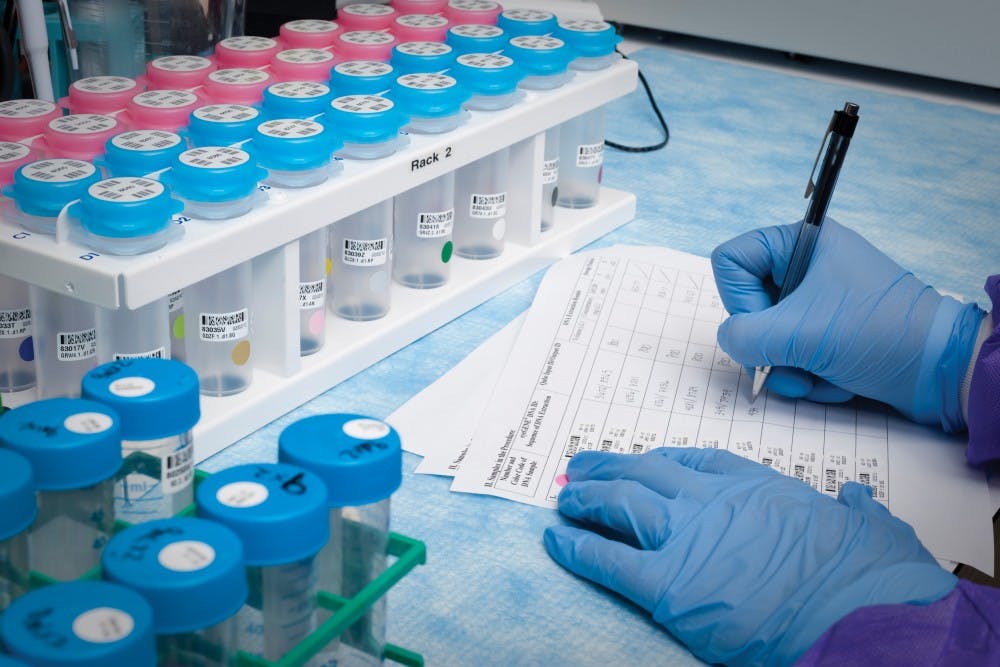Four Penn undergraduate students recently won the 2019 Y-Prize for creating an improved catheter that can help keep deadly infections from growing.
The Y-Prize is a contest for members of the Penn community to create practical applications for emerging technologies. Winners receive $10,000 to develop their technology.
This year's Y-Prize winners were Wharton senior Tanvi Kapur, Wharton and Engineering senior Beatriz Go, College and Wharton junior Ishir Seth, and College and Wharton senior WenTao Zhang. Seth and Zhang are both students in the Roy and Diana Vagelos Program in Life Science Management. The group was selected from among four finalist teams to receive the Y-prize.
The group's innovation idea was to develop a catheter that has micro-sized crevices to prevent bacterial growth, which can cause infection. The award will allow them to enter the in vivo testing and clinical trials process.
Urinary tract infections are the most common type of healthcare-related infections, and 75 percent of these acquired in a hospital are associated with catheters. Each year, over 13,000 people die due to complications of UTI's.
"This is a huge problem in hospitals," Kapur told Penn Today, adding that Zhang’s great-grandfather died from complications of a catheter-related infection.
In the development of their catheter, the team used a printing technology called Roll-to-Roll surface wrinkle printing, which creates wrinkles on materials produced in large amounts. The technology was invented by Penn Chemical and Biomolecular Engineering professors Daeyeon Lee, Kathleen Stebe, and Shu Yang, along with postdoctoral student Xu Zhang.
The contest is sponsored by Penn's School of Engineering and Applied Science, the Penn Center for Innovation, Penn Wharton Entrepreneurship, and Wharton's Mack Institute for Innovation Management.
RELATED:
Five students receive free tuition after winning prestigious Penn science award
PennDesign receives $1.25 million from Witte-Sakamoto family to establish city planning award
Throughout the design process, the winning team worked with researchers from the Children’s Hospital of Philadelphia and the Perelman School of Medicine.
Past Y-Prize winners have applied new technologies to various medical and lifestyle concerns. The 2018 winners created Chromosense, which tests early-stage human embryos for mutations. In 2017, winners created VisiPlate, a nano-scale defense that protects against blindness caused by open angle glaucoma. In 2016, Y-prize winners used microdroplet technology to speed up the process of brewing beer.









